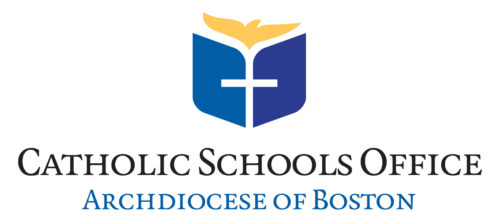Hello and welcome!
This month I have been happy to be able to give two of our newly ordained priests, Fathers Joe Almeida and Brain O’Hanlon, an opportunity to introduce themselves to you.
Along those same lines, this week, I have asked our new Superintendent of Schools, Thomas Carroll, to introduce himself to you through my blog. Tom came to the archdiocese this spring and, now that he has had a chance to settle in, I’ve asked him to share with you a little bit about his background and his hopes and aspirations for our Catholic schools going forward.
– Cardinal Seán
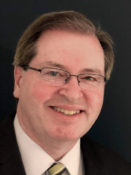
One of the joys of my position as the new Superintendent of Schools for the Archdiocese of Boston is the many committed people I have met in our Catholic schools. I have learned much in just a few months, and the daze of my initial weeks has subsided. I still have many more schools to visit and look forward to meeting many more school leaders, parents, teachers and students.
I came to the position having founded and led a highly successful network of urban schools in New York. I also ran two Catholic scholarship funds (one in New York City and one in Albany), and advocated with Cardinal Timothy Dolan and others for legislation in New York and D.C. to create a tax credit to encourage donations to benefit children attending Catholic and other private schools.
My prior experiences plus what I have learned in Boston so far suggest that the task ahead is daunting but not impossible. In short, we are seeking to buck the longstanding national trend of declining Catholic school enrollment. In the early 1960s, national Catholic enrollment peaked at five million students, dropping to just 1.8 million in the latest data.
Let me suggest a few broad ideas. If you think any of these are wrong-headed or you simply have better ideas, I welcome your input.
1. Improving the quality of school leadership.
I have been in hundreds of Catholic, charter, and district schools. I have never seen a high-quality school that did not have a high-quality school leader. The biggest leverage for ensuring academic quality and financial sustainability is a quality school leader. That’s why we are dedicating substantial resources to training our school leaders. In a new partnership with the Lynch Leadership Academy at Boston College, we have jointly designed a leadership initiative in the coming year that will work with more than 20 of our school leaders to strengthen their capacity for leadership and vision as well as their ability to serve as true instructional leaders. I commend the principals who seized this opportunity to improve their craft. We also are continuing the Aspiring Leaders program, under which talented teachers are given the opportunity to be mentored as future school leaders.
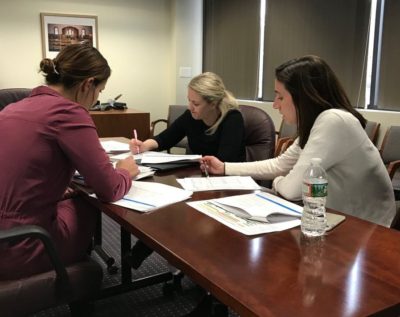
2. Go further with faith by improving the Catholic identity of our schools.
A top priority is to ensure that all of our schools offer our students a rich exposure to our Catholic faith.
This will include helping students make prayer a central part of their lives, affording frequent opportunities to experience the beauty of the Mass, expose them to sacred music, and learn more about the many contributions the Catholic Church has made to Western civilization, including in the areas of architecture, visual arts, music, law, and science. Students also should be exposed to the Church’s admirable and ongoing legacy of helping the needy and dispossessed across the globe. Lastly, we would like to expand the student opportunities for confession and adoration as well.
We want to make sure that students understand Catholic moral teaching on issues such as life, suffering, chastity, care of the needy, the dignity of all people including those facing physical and mental challenges, and end-of-life issues. We also want students to explore the new moral challenges posed by technology, including human cloning and gene editing.
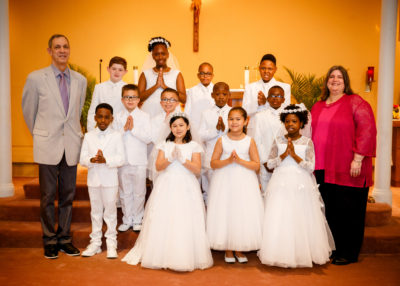
This summer, we are offering professional development classes for teachers of religion, for which we already have received an enthusiastic response. We also are exploring the possibility of offering teachers the opportunity to participate in “certificate” programs to further enhance their preparation as religion teachers. All of our offerings will include opportunities for us to gain teacher feedback as we refine our preparation initiatives.
3. Expanding early childhood education to give students an early start.
Building on pioneering work funded by the Lynch Foundation, we are helping schools expand early childhood education. This includes training schools to apply for available state funding, guiding them as they think strategically about adding early childhood grades, assessing the capacity of schools to accommodate more students, and providing funding for any improvements needed to create inviting spaces for these young children.
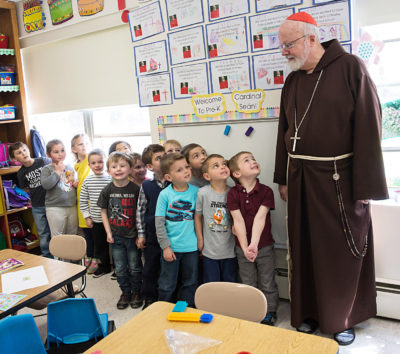
4. Helping schools building a foundation of strong enrollment, sound finances and operational vitality.
The Catholic Schools Office is providing advice this summer to all schools on steps to increase enrollment, arranging for schools whose enrollment is rising to serve as mentors to schools in need of help turning around declining enrollment, targeting growing populations of Catholics (for example, Latino communities) for special initiatives, helping schools improve the quality of their financial planning, and giving assistance to help schools think more strategically about how to stand out amidst all the other educational offerings in their local community.
We also are exploring how to expand the number of teachers and other school staff who are fluent in languages other than English to enable better communication with immigrant families.
There is much to do – and hard decisions to make – but I am optimistic about the future of Catholic education in the Archdiocese of Boston.

